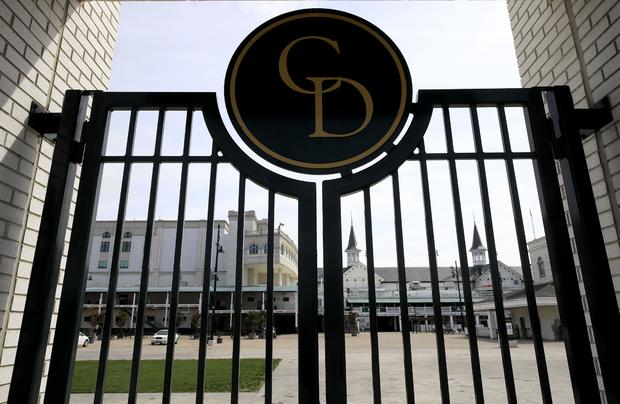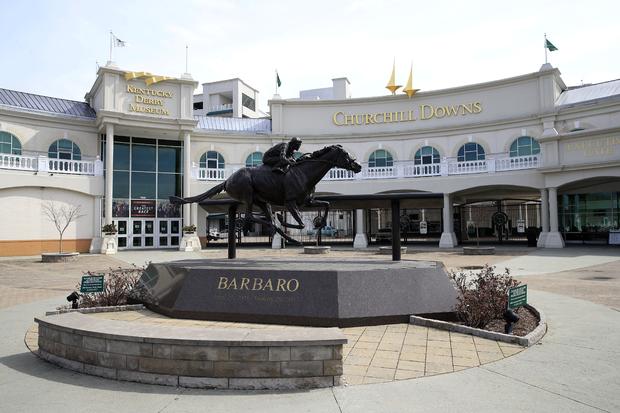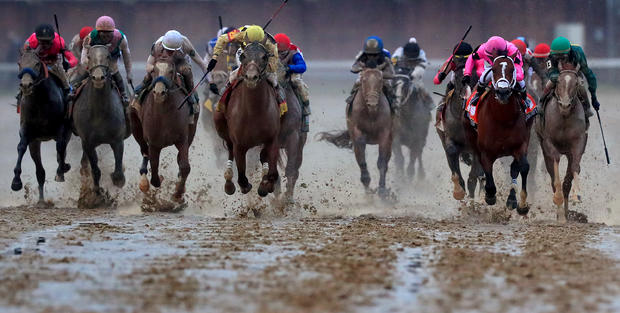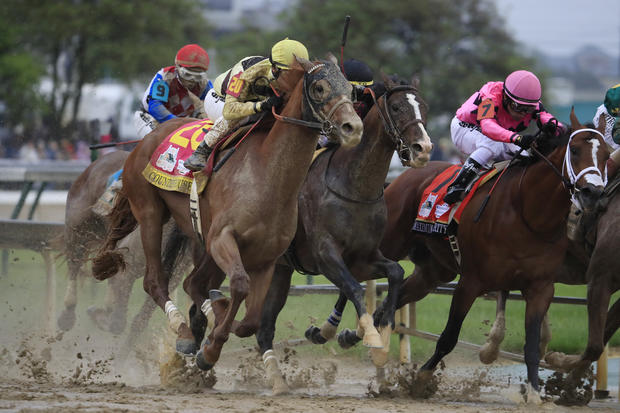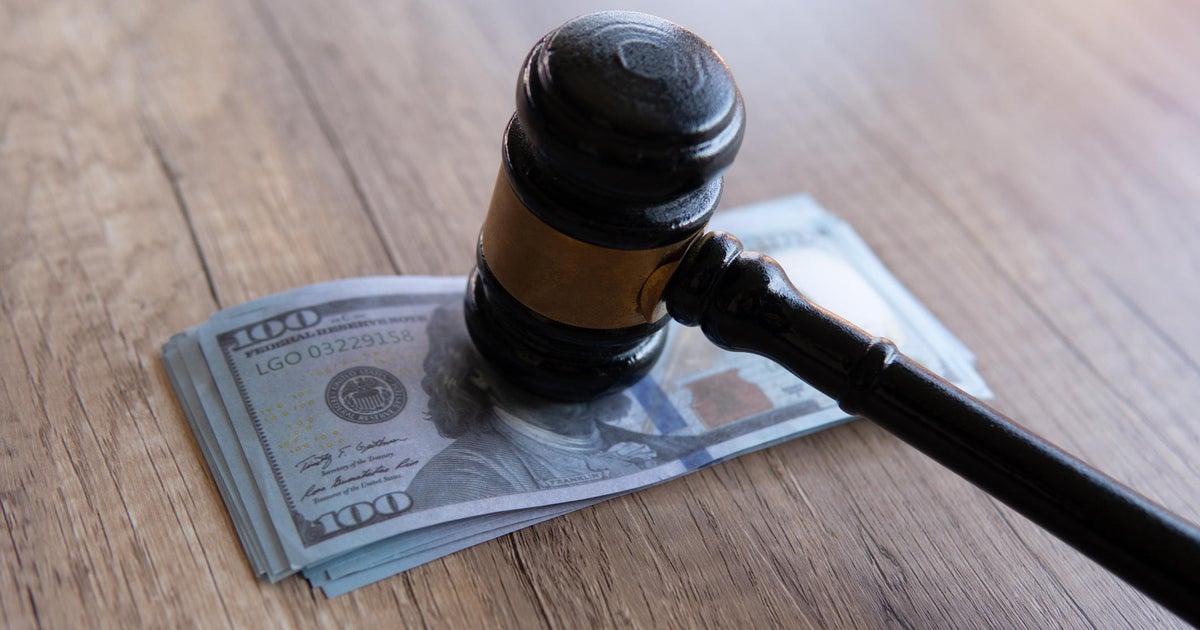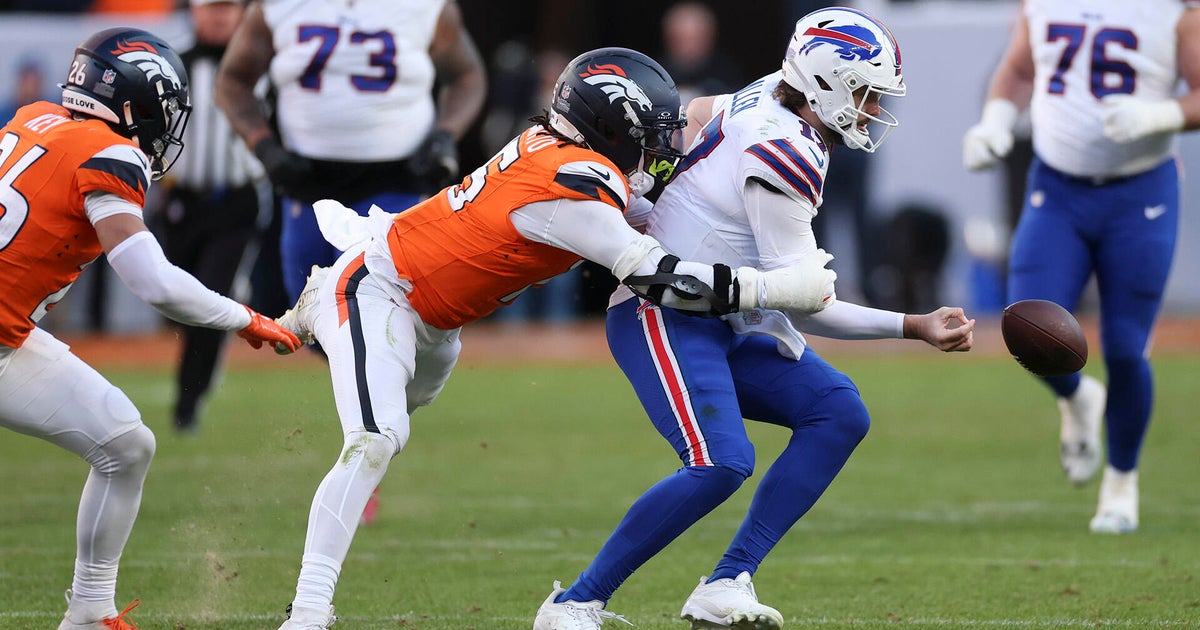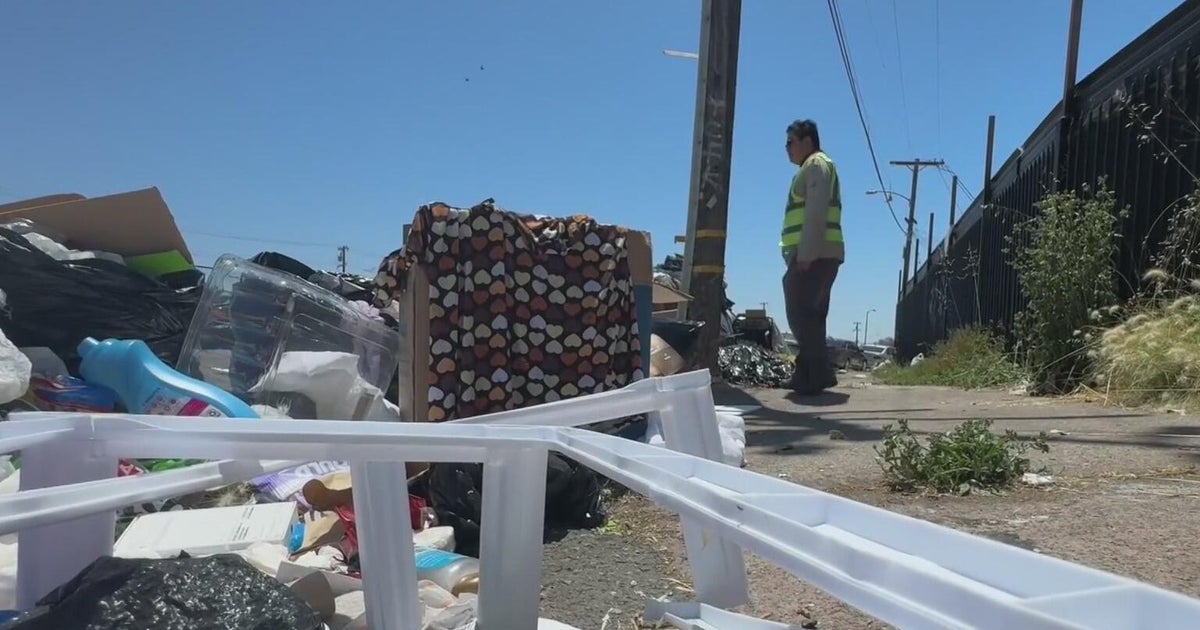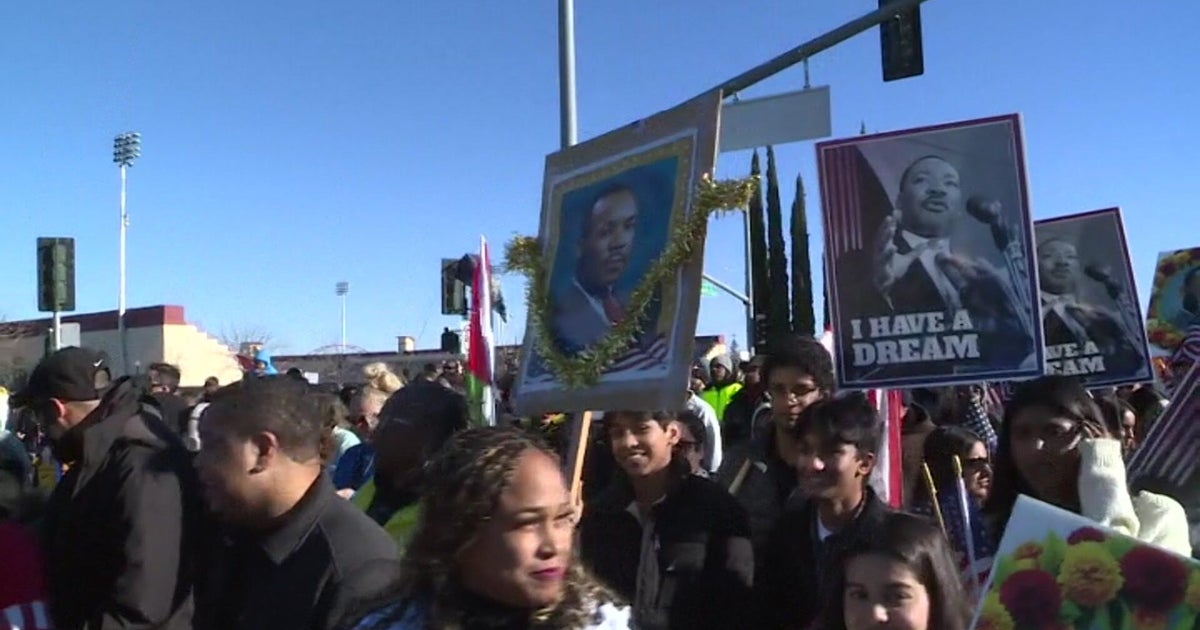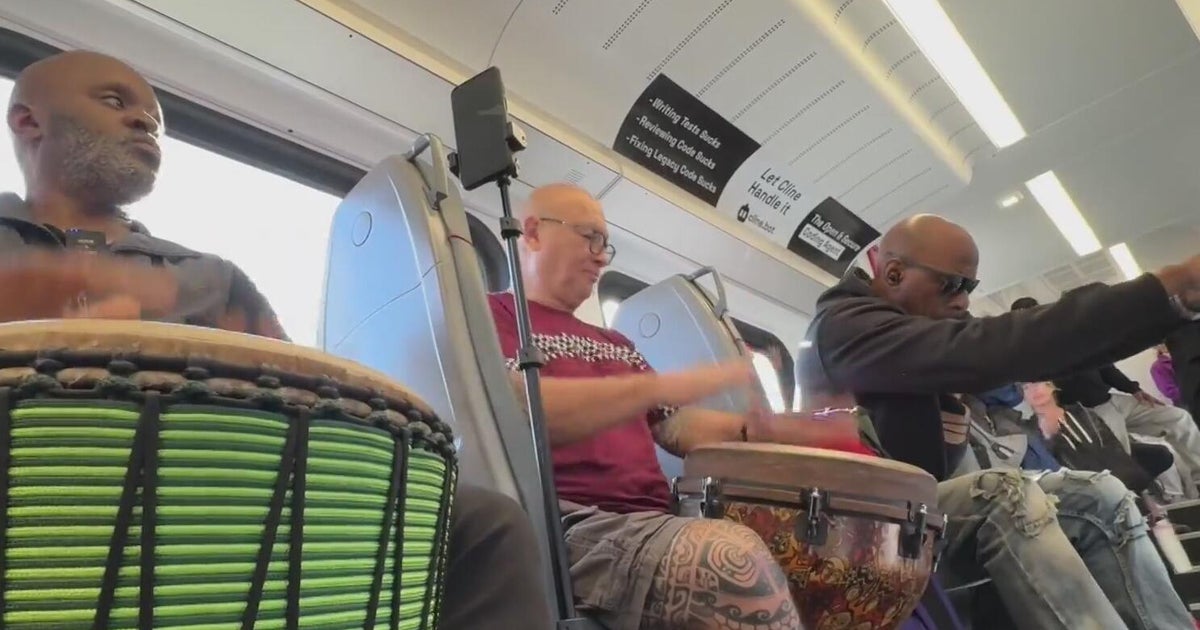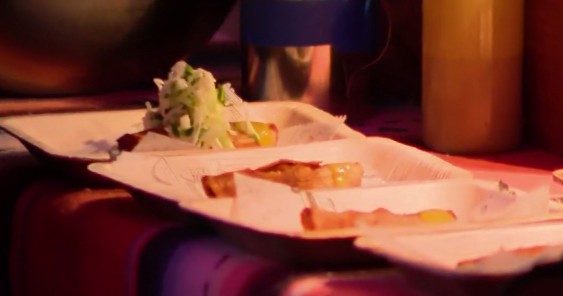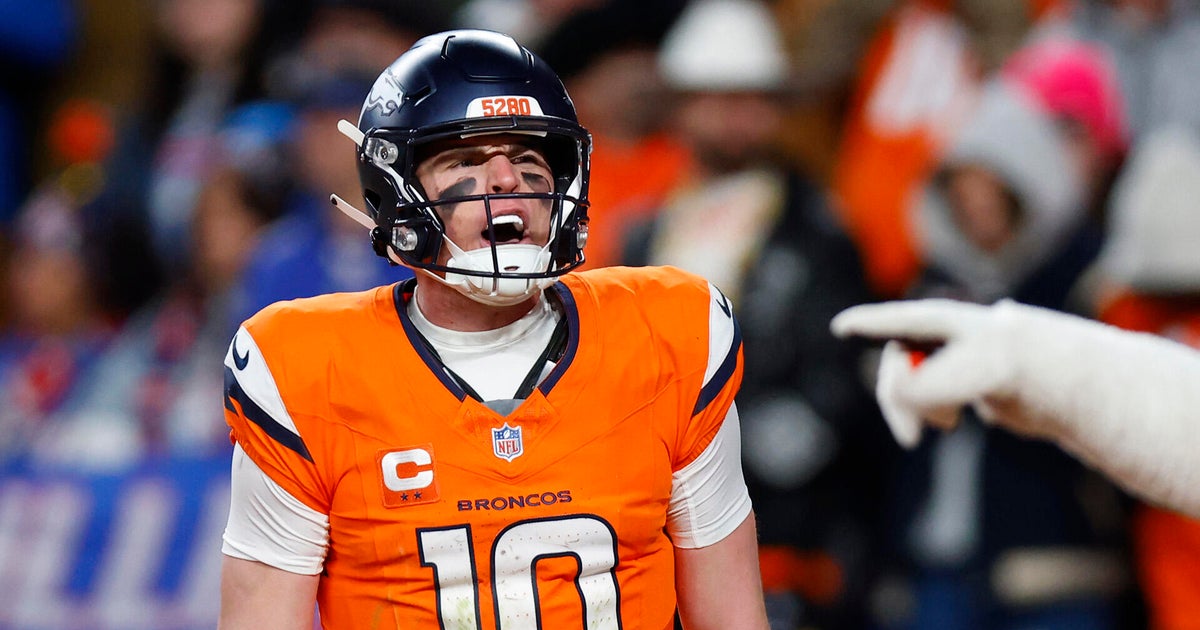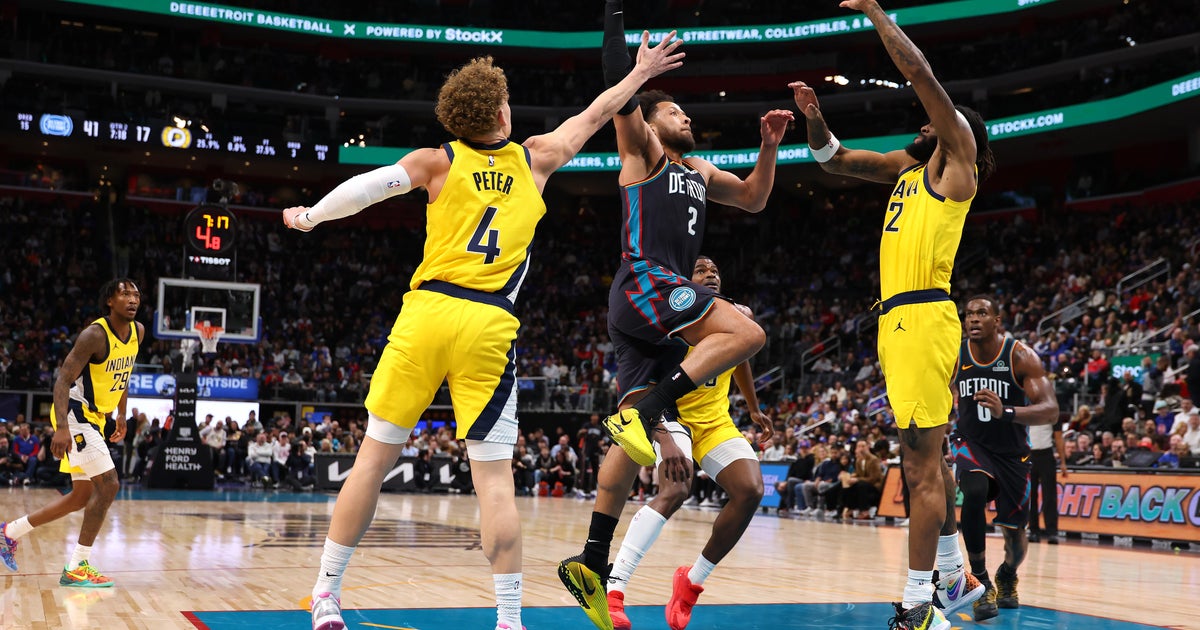Kentucky Derby's Move To Labor Day Takes Some Getting Used To
LOUISVILLE, Ky. (AP) — Postponing the Kentucky Derby was jarring enough for a city that draws much of its identity from hosting horse racing's marquee event.
Canceling it, well, that's unthinkable in the Bluegrass State.
The move of the Triple Crown's first leg to Labor Day weekend due to the coronavirus pandemic will mark the first time the Derby won't run in Louisville on the first Saturday in May since 1945.
"This is what makes Louisville great, obviously, and Kentucky great," said Andy Treinen, president and CEO of the downtown Frazier History Museum. "The race is important and all eyes in the world are on Louisville at that time.
"That doesn't mean they won't work in the summer. I hope that they do. If we survive this period because of COVID-19 coronavirus and I think we will, what does that look like in the summer? Because the summer's already heavily scheduled around here."
The Associated Press is looking at the impact of the cancellation or postponement of some iconic sporting events due to the coronavirus pandemic is having on cities and communities. Churchill Downs never considered canceling the 146th Derby. Louisville Tourism estimates the economic impact of Kentucky Derby season on the region at more than $400 million, a figure that includes the Kentucky Oaks race for fillies run the day before the Derby.
Instead of canceling the race, it was postponed; the race was moved from May 2 to Sept. 5. Whether the $400 million estimate holds up this fall remains to be seen with the Derby running on a holiday weekend that also kicks off the college football season.
Another consideration is how the region's mindset shifts from the Derby being a rite of spring to closing out the summer.
But fans, patrons and business owners have time to adjust as Louisville breaths a sign of relief — for now.
"This is a far better scenario than canceling, so we hope the race in September will help mitigate that economic impact over the next few months," said Sarah Davasher-Wisdom, president and CEO of Greater Louisville Inc., the Metro Chamber of Commerce.
"You ask anybody here in Louisville, most people are not concerned about the difference between May and September. They were concerned that it would be canceled, and the fact that it wasn't is a big relief."
While the Kentucky Derby remains on the sports docket, its new calendar date might confuse fans accustomed to women in big, colorful hats and men in bright seersucker suits. Spectators sip mint juleps featuring Kentucky's trademark bourbon, and cigar smoke wafts through the air.
Louisville prides itself on those Derby scenes.
The hope is that they continue in September, ideally with the Derby kicking off a rescheduled Triple Crown if the Preakness and Belmont Stakes also move to fall.
For businesses that generate much of their revenue from the Derby, the postponement has created an immediate challenge of filling the calendar with work and clients. That has become difficult with many restaurants and retail outlets in the Bluegrass State closing because of the pandemic.
A delayed Derby has forced milliner and Louisville native Kenzie Kapp to temporarily stop creating those women's hats synonymous with race season. She has been left scrambling to find ideas befitting a signature event that's a little too early for earthy tones.
"When I think of Labor Day, I think of it as summer and it's usually the hottest time and sticky," said Kapp, who has owned the Mill by Kenzie since 2008. "Doing the Derby in May, you have your spring, bright colors. I don't really think that palette's going to apply unless you have specific people that come in and want really fall colors.
"I'm not going to go browns, oranges and yellows if it's a hundred degrees out."
Cigar maker Jason Shepherd also hoped the Derby would again spike business after the winter doldrums. The two-week period that begins with the Thunder Over Louisville air show helps generate about 25% of the income for his store located a few miles from Churchill Downs.
J. Shepherd Cigars had eight parties planned for Derby week, and the owner isn't sure if those clients will return four months later.
"With the weather changing and being able to be outside, I will start booking events again," Shepherd said. "Especially after being quarantined, people are itching to get out and do something. I'll focus on doing my oldest events since we lost this huge event.
"It's all up in the air. ... But we're going to try to keep moving and pushing forward like we always do."
The bourbon industry is also having to adjust. Distillery tours are on hold because of coronavirus precautions, but activity figures to quickly ramp up if and when restrictions are lifted, including Derby preparations since it's hard to imagine one without the other in this region.
"We'll just shift to the new timing," Heaven Hill Brands president Lauren Cherry said.
Meanwhile, Louisville is remaining optimistic about the delay.
"September is a wonderful time to be in Kentucky," Davasher-Wisdom said. "The weather is great, it's bourbon month and there are also several live music festivals, so this may work out."
The move of the Triple Crown's first leg to Labor Day weekend due to the coronavirus pandemic will mark the first time the Derby won't run in Louisville on the first Saturday in May since 1945.
